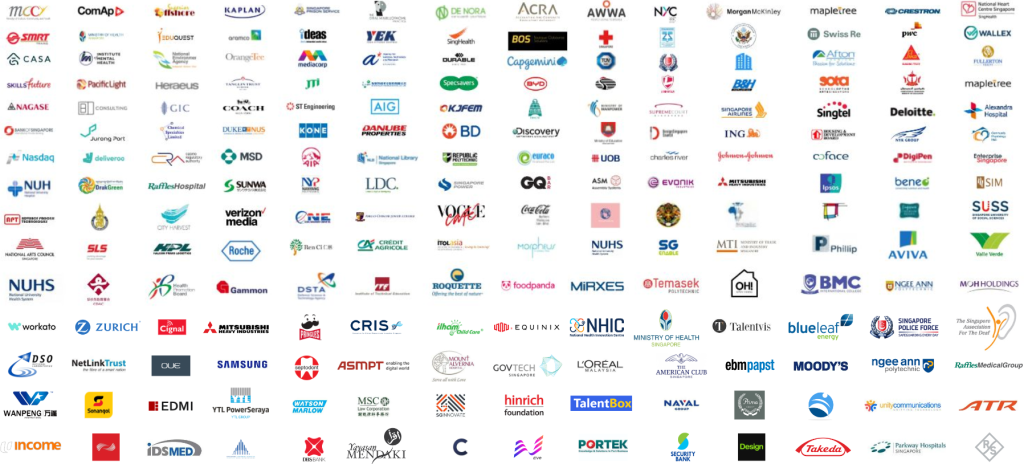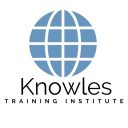Critical Thinking Skills Training Course in Botswana
Our corporate training course is also available in Gaborone (the capital city), Francistown, Molepolole, Serowe, Maun, Kanye, Mahalapye, Lobatse, Mochudi, Palapye, Selibe-Phikwe, Ramotswa, Thamaga, Tonota, Letlhakane, Orapa, Ghanzi, Shakawe, Tlokweng, Jwaneng, Kasane, Ramotswa, Lobatse, Orapa, Sowa, Mogoditshane, Tlokweng, Palapye, Mochudi, Tshabong, Kasane, Maun, Ghanzi, Shakawe, Jwaneng.

Nestled in the heart of Southern Africa, amidst the vibrant landscapes and rich cultural tapestry of Botswana, there arises a pressing need for individuals to hone their critical thinking skills. In a rapidly evolving global landscape, where challenges emerge as swiftly as the dawn breaks over the Okavango Delta, the ability to think critically is not merely an asset but a necessity. Recognizing this imperative, a groundbreaking initiative is poised to take flight – the Critical Thinking Skills Training Course in Botswana.
Picture yourself amidst the bustling streets of Gaborone or the serene beauty of the Chobe National Park, where the call for critical thinkers reverberates across the savannah. This innovative course promises to be more than just a learning experience; it is a journey of self-discovery and empowerment. Participants will embark on a transformative odyssey, guided by seasoned experts who are dedicated to unlocking the full potential of every individual.
Through engaging workshops, stimulating discussions, and practical exercises, attendees will navigate the intricate labyrinth of logical reasoning, analytical thinking, and problem-solving prowess. From dissecting complex issues to crafting well-reasoned arguments, participants will emerge equipped with the tools to navigate the maze of modern-day challenges with confidence and clarity. The Critical Thinking Skills Training Course in Botswana is not merely about acquiring knowledge; it is about fostering a mindset – one that embraces curiosity, questions assumptions, and dares to challenge the status quo.
So, whether you’re a seasoned professional seeking to sharpen your cognitive edge or a student eager to unlock new horizons of intellectual inquiry, join us on this remarkable voyage of discovery. Together, let us embark on a quest to cultivate the critical thinking skills that will propel Botswana towards a future of innovation, resilience, and progress. The Critical Thinking Skills Training Course in Botswana awaits, beckoning you to seize this unparalleled opportunity for growth and enlightenment.
Who Should Attend this Critical Thinking Skills Training Course in Botswana
In the bustling metropolis of Botswana, where innovation and progress intersect, stands a beacon of intellectual empowerment – the Critical Thinking Skills Training Course. Designed to meet the demands of a rapidly evolving world, this course offers a transformative experience for individuals seeking to hone their analytical abilities and enhance their decision-making prowess. Rooted in the rich soil of Botswana’s cultural heritage, this course serves as a gateway to unlocking the potential of critical thought and fostering a community of insightful and discerning thinkers.
As the curtains rise on the Critical Thinking Skills Training Course, participants from diverse backgrounds gather with a shared mission: to cultivate the art of critical thinking. Through a series of immersive lectures, thought-provoking discussions, and hands-on exercises, participants embark on a journey of intellectual discovery. From dissecting complex arguments to evaluating evidence and identifying logical fallacies, every session is a step towards sharpening minds and broadening perspectives.
- Executives
- Team Leaders
- Entrepreneurs
- Educators
- Recent Graduates
Course Duration for Critical Thinking Skills Training Course in Botswana
Embark on a journey of intellectual exploration with the Critical Thinking Skills Training Course, offered in various durations to accommodate diverse schedules and preferences. Participants can opt for a comprehensive experience spanning three full days, immersing themselves in deep learning and critical analysis. Alternatively, for those with limited availability, condensed formats including one-day, half-day, 90-minute, or even 60-minute sessions are available, ensuring accessibility to this enriching training experience.
- 2 Full Days
- 9 a.m to 5 p.m
Course Benefits of Critical Thinking Skills Training Course in Botswana
Unlock the power of critical thinking with the Critical Thinking Skills Training Course, designed to enhance decision-making, problem-solving, and analytical abilities.
- Sharpen analytical skills
- Improve decision-making capabilities
- Enhance problem-solving techniques
- Develop logical reasoning
- Increase creativity and innovation
- Strengthen communication skills
- Boost academic performance
- Enhance professional effectiveness
- Foster intellectual independence
- Promote lifelong learning
Course Objectives for Critical Thinking Skills Training Course in Botswana
Immerse yourself in the Critical Thinking Skills Training Course, where the objectives include fostering intellectual independence and promoting lifelong learning through the sharpening of analytical skills and enhancement of problem-solving techniques.
- Encourage critical questioning and inquiry.
- Develop strategies for evaluating sources and information critically.
- Enhance the ability to identify and assess assumptions.
- Foster open-mindedness and willingness to consider alternative perspectives.
- Cultivate a habit of reflection and self-assessment.
- Promote intellectual humility and willingness to revise beliefs in light of new evidence.
- Provide opportunities for collaborative learning and peer feedback.
- Develop skills for recognizing and avoiding common fallacies in reasoning.
- Foster a culture of intellectual curiosity and inquiry within organizations.
- Promote ethical reasoning and decision-making.
- Encourage the application of critical thinking skills to real-world problems and challenges.
- Provide resources and tools for continued development and practice of critical thinking skills.
Course Content for Critical Thinking Skills Training Course in Botswana
Immerse yourself in the Critical Thinking Skills Training Course, where participants engage in a wide array of stimulating topics designed to enhance critical thinking abilities.
- Encourage critical questioning and inquiry:
- Explore techniques for asking probing questions to uncover underlying assumptions.
- Learn how to analyze issues from multiple perspectives to gain a deeper understanding.
- Practice questioning the validity and reliability of information and sources.
- Develop strategies for evaluating sources and information critically:
- Learn criteria for evaluating the credibility and relevance of sources.
- Explore methods for distinguishing between fact and opinion.
- Practice identifying bias and recognizing propaganda techniques in media and information sources.
- Enhance the ability to identify and assess assumptions:
- Understand the importance of recognizing implicit assumptions in arguments.
- Learn strategies for identifying unstated premises and implications.
- Practice evaluating the validity and relevance of assumptions in various contexts.
- Foster open-mindedness and willingness to consider alternative perspectives:
- Explore the value of being receptive to diverse viewpoints and opinions.
- Learn techniques for actively listening to and empathizing with differing perspectives.
- Practice engaging in constructive dialogue and debate with those holding different opinions.
- Cultivate a habit of reflection and self-assessment:
- Explore methods for reflecting on personal beliefs, biases, and assumptions.
- Learn strategies for conducting self-assessments to identify areas for improvement.
- Practice incorporating feedback from self-reflection into ongoing learning and growth.
- Promote intellectual humility and willingness to revise beliefs in light of new evidence:
- Understand the importance of humility in acknowledging one’s limitations and fallibility.
- Learn techniques for evaluating and integrating new evidence into existing beliefs.
- Practice being open to changing one’s mind based on rational examination and evidence.
- Provide opportunities for collaborative learning and peer feedback:
- Engage in group discussions and collaborative activities to explore complex issues.
- Learn how to provide constructive feedback to peers and receive feedback graciously.
- Practice working collaboratively to solve problems and evaluate arguments.
- Develop skills for recognizing and avoiding common fallacies in reasoning:
- Learn to identify logical fallacies such as ad hominem attacks and false dichotomies.
- Understand how fallacious reasoning can undermine the validity of arguments.
- Practice analyzing and critiquing arguments to identify and avoid fallacious reasoning.
- Foster a culture of intellectual curiosity and inquiry within organizations:
- Explore strategies for creating an environment that values critical thinking and inquiry.
- Learn how leaders can encourage curiosity and foster a culture of questioning.
- Practice promoting intellectual diversity and encouraging employees to challenge assumptions and explore new ideas.
- Promote ethical reasoning and decision-making:
- Understand the ethical implications of decisions and actions.
- Learn frameworks for ethical reasoning and decision-making.
- Practice applying ethical principles to real-world scenarios and dilemmas.
- Encourage the application of critical thinking skills to real-world problems and challenges:
- Explore case studies and examples demonstrating the practical application of critical thinking.
- Learn how to analyze and evaluate real-world issues using critical thinking skills.
- Practice applying critical thinking skills to develop solutions to complex problems.
- Provide resources and tools for continued development and practice of critical thinking skills:
- Explore additional resources, such as books, articles, and online courses, for further learning.
- Learn about tools and technologies that support critical thinking and analysis.
- Practice incorporating critical thinking skills into daily life and professional practice.
Course Fees for Critical Thinking Skills Training Course in Botswana
Discover the pathway to mastering critical thinking with the Critical Thinking Skills Training Course in Botswana, offering a range of flexible pricing options to suit individual preferences and budgets. Participants can choose from four distinct pricing tiers, each tailored to accommodate varying needs and levels of engagement. Whether opting for a comprehensive experience or a condensed session, the Critical Thinking Skills Training Course ensures accessibility and affordability for all aspiring critical thinkers.
- USD 679.97 For a 60-minute Lunch Talk Session.
- USD 289.97 For a Half Day Course Per Participant.
- USD 439.97 For a 1 Day Course Per Participant.
- USD 589.97 For a 2 Day Course Per Participant.
- Discounts available for more than 2 participants.
Upcoming Course and Course Brochure Download for Critical Thinking Skills Training Course in Botswana
Stay informed and take the next step towards mastering critical thinking with the Critical Thinking Skills Training Course in Botswana. Keep an eye out for upcoming updates and the availability of brochures, providing comprehensive details about course content, pricing options, and registration procedures. Whether you’re eager to delve into the depths of critical thought or enhance your analytical abilities, the Critical Thinking Skills Training Course brochure will guide you through the enriching journey that awaits.

The Best Corporate Training Courses in Botswana, Corporate Training Courses in Botswana
